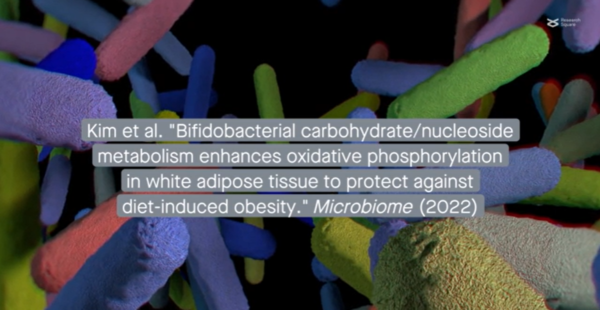Genome & Company, specializing in microbiome therapeutics, said on Friday that it published study results showing Bifidobacterium longum and Bifidobacterium bifidum bacteria located in the gut were associated with protecting against diet-induced obesity.

The research team analyzed intestinal microorganisms of 99 healthy Koreans and confirmed that Bifidobacterium bifidum and Bifidobacterium longum (hereinafter referred to as anti-obesity strain) were distributed at a significantly higher level in people with a normal weight compared to obese people.
These two bacterial strains were identified as key anti-obesity strains to help develop therapeutics, said an official at Genome & Company.
The research team administered the strain to the obese mouse model and the sterile mouse model, respectively, and confirmed that the anti-obesity strain had a weight loss effect and was not affected by other strains.
Additionally, through multi-omics analysis, the effect of suppressing obesity varies depending on the strain even with the same species, and based on this, the mechanism of action (MOA) for microbiome was identified.
"We are pleased to identify this mechanism of action in the human body for a specific microbiome through the results of this study," Genome & Company co-CEO Park Han-soo said. "We will strive to use these research results in the development of new microbiome drugs at the company to overcome the unmet medical needs."
The study, titled, “Bifidobacterial carbohydrate/nucleoside metabolism enhances oxidative phosphorylation in white adipose tissue to protect against diet-induced obesity,” was published in the journal Microbiome earlier this month.

